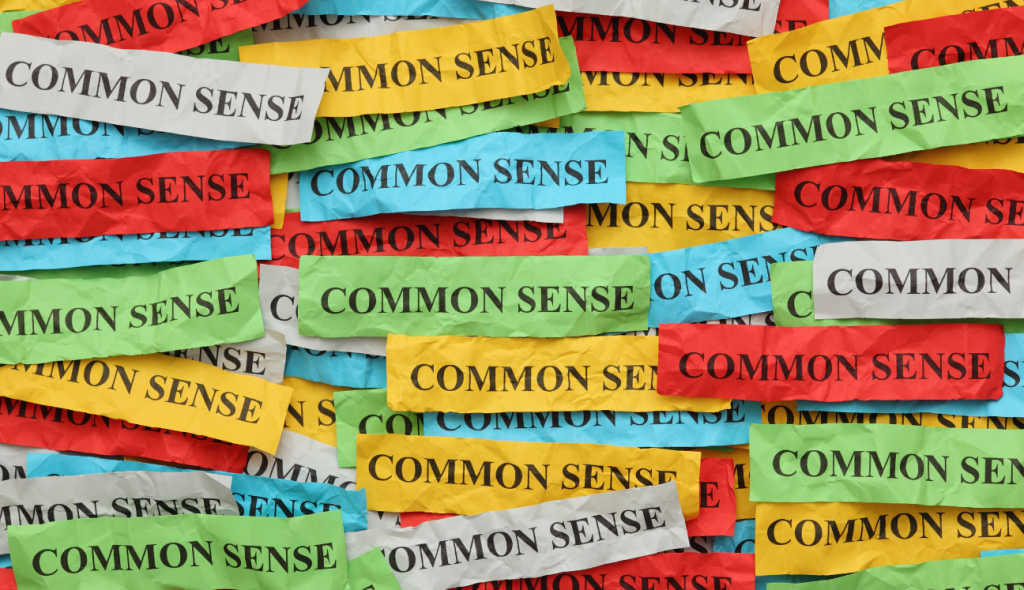Below we offer a consideration by Kilton company owner Silvano Chiello on the difference between Common Sense and Conventional Wisdom in everyday and working life.
“Conventional Wisdom” and “common sense” are two totally different concepts, even though they seem similar.
“An animal with sharp teeth can bite”: such a truism is the foundation of common sense, which, although a concept considered quite vague, is tied double-handedly to both personal and collective experience, as well as practical knowledge of the areas in which it is applied in everyday life.
Why, however, is common sense varied and not the same for everyone? Because it is influenced by each individual’s judgment, experience and value, and secondarily it is influenced by the individual’s intellectual capacity, logical connection and learning.
However, our social system works by majorities, so multiple people with “the same common sense” create within a short time a system of shared canons and rules that help define the reasonable correct way to behave, think and act. But having reached this point, we no longer speak of “common sense” but of “conventional wisdom”: this indicates nothing more than the trend, that is, what average people think and perceive.
The real differences between Common Sense and Conventional Wisdom
The simple and real differences?
- Common sense aims at fairness, truth, and pursuing the right thing
- Conventional wisdom points only to majority thinking that is often (unfortunately) lacking in analysis, and not surprisingly often conflicts with the scientific nature of things. The former lives with the view of bringing positive results for as many people as possible, the latter does not.
Why do we talk about this difference between conventional wisdom and common sense? Because even in the workplace and in companies of all kinds we can find situations where conventional wisdom and common sense are used, or times when common sense is lacking, or even times when conventional wisdom fails to notice its mistakes.
A practical example of the difference between Common Sense and Conventional Wisdom
A supplier reports goods ready to be picked up to a customer, via e-mail and pdf transport document. Asking that supplier if that merchandise is on a pallet is part of conventional wisdom, from the perspective of making a pickup and having to give data to carriers. But the person using common sense goes one step further: he opens the pdf document because he knows it’s not a virus and figures it’s not a random attachment, reads all the data independently and gives the pickup to his carrier, with the ultimate goal of saving not only himself, but also those on the other side of the supplier’s office, time and effort. Indeed, expanding the thinking can save time for third-party offices as well, because by turning that same email with the document over to them, there will be no room for error or other wasted time through queries that have already been satisfied. The view is no longer one of “getting told things already written,” but rather one of using the minimal effort of a couple of clicks and reading to make work easier for oneself and others.
Unfortunately, this is not an easy matter, since the problem common sense poses is that a more practical but still new way of thinking will encounter opposition the moment it conflicts with the assumptions established by conventional wisdom. These are difficult conflicts to manage and may even end with the rejection of the innovation and with sanctions to the innovators.
Common sense is needed to facilitate each other, but we need to make a mental effort and develop it. How? The prerequisite is the correct view of what is happening in a given context, and to do so requires a set of mental tools such as the ability to analyze and recognize problems, to identify solutions, to think through actual and potential consequences and impacts, and so on.
It is definitely not a path for everyone, as listening, practice, logic and above all humility are required.
If you found this consideration interesting check out our blog, you will find other in-depth articles on contemporary issues.


